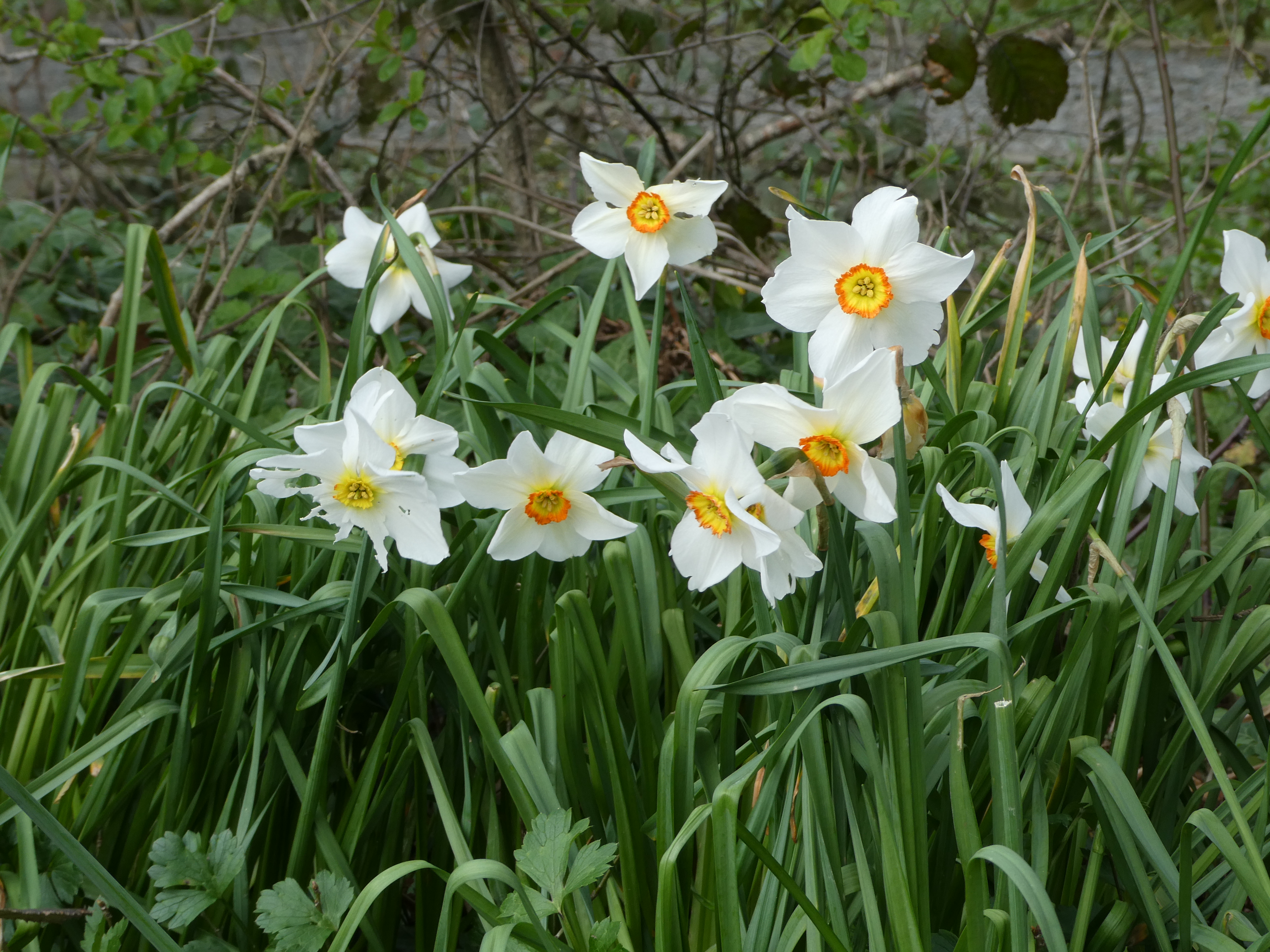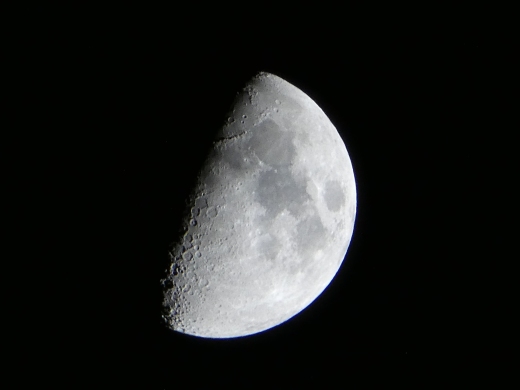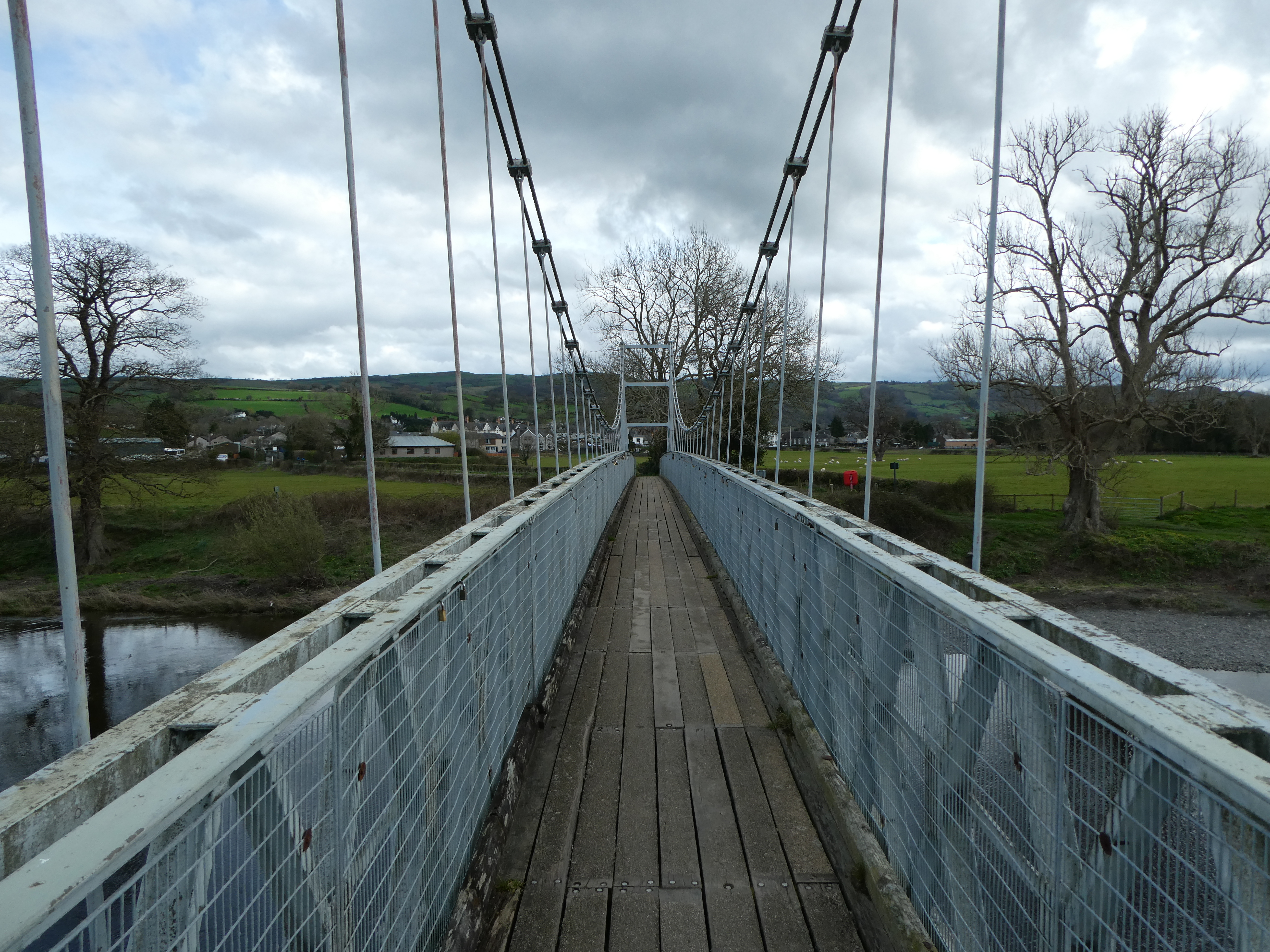It’s the cruellest month, you know?
I am also now the proud owner of a bus pass. How the hell did that happen?
And that up there is Broomhead Reservoir near Ewden. It is bathed in typical English Aprilness. And it’s no use underlining Aprilness in red dots because I consider it a completely valid word and everyone will understand exactly what I mean.
There, that’s put whatever busybodying piece of software that’s embedded in my laptop somewhere in its place. And I’m keeping busybodying as well.
As it is now officially spring and a time of new growth and warmer weather and general cheerfulness, I’ve decided this month to talk about death.
Yeah, death.
There’s a lot of it about. Especially and worryingly around friends of mine just lately. I remember my parents and grandparents reading through obituaries at the back of local papers and saying things like, ‘Oooh, old Mabel’s died.’ or, ‘Let’s see if anyone we know’s gone this week.’ I thought it was a particularly grim thing to preoccupy yourself with and inwardly swore that I would never do that. And I don’t! Mainly because I refuse to read printed media. So that should have been an end to it, shouldn’t it? What I didn’t reckon with was social media. Anyway, the long and the short of it is that I have recently (the past few years) lost a worrying number of old friends and colleagues. I’m in my mid sixties and most of the people I worked with back in the days of BT or the Post Office as it was then known (I even go back as far as GPO if insignias and logos on corporate clothing is allowed) were a decade or more older than me.  So, I suppose, mid to late seventies is a time when you would expect an unlucky few to shuffle off this mortal coil (ta, Billy), but not so many, surely (and don’t call me Shirley) and not so regularly. I was talking to an old mate at a recent send-off pre-barbecue event and said that these are now frequent enough for me to feel as though I’ve gone back to work as I was spending so much time with all my old mates again. To which he replied, ‘Yeah, but with one less each week.’ I thought I would find this aspect of aging depressing but to be honest it’s more alarming than anything. Nods go around those gathered at the funerals as much as to say, ‘You’re still here then?’
So, I suppose, mid to late seventies is a time when you would expect an unlucky few to shuffle off this mortal coil (ta, Billy), but not so many, surely (and don’t call me Shirley) and not so regularly. I was talking to an old mate at a recent send-off pre-barbecue event and said that these are now frequent enough for me to feel as though I’ve gone back to work as I was spending so much time with all my old mates again. To which he replied, ‘Yeah, but with one less each week.’ I thought I would find this aspect of aging depressing but to be honest it’s more alarming than anything. Nods go around those gathered at the funerals as much as to say, ‘You’re still here then?’
Seriously though, it has made me confront my own mortality more than I feel completely comfortable with. I had a ‘bit of a do’ in 2022 involving MRIs, surgeons and robots that focused me more than normal but that seems to be settling into an ongoing irritation rather than the impending doom I initially thought it was. Nevertheless, I sense a change of attitude in how I feel about the inevitable. Rather than fearing what might lie ahead, I detect a strange level of fascination. A piqued interest if you like. An event that I have always feared and pretended will never happen has somehow morphed into a question of, ‘What exactly will the process be?’ Okay, first off, I don’t harbour any religious beliefs that I will secure everlasting ecstasy in the afterlife. I guess it would be reassuring to have that in your back pocket but it seems pretty unlikely to me and I’ve always viewed those beliefs as something most likely generated by those that need us to keep calm and keep going knowing that there is something better at the end of all this. Bit like a pension scheme but with added extras: sunshine and everlasting life; meeting relatives that have passed away; maybe a ton of virgins to work through. It all depends on which one you’re signed up for. But I think the soul purpose of this idea (see what I did there?) is to avoid the ‘Is This It?’ question. It would be harder to accept a life of misery, pain and poverty if you didn’t think there was a pay-off at the end so I can see why there is a need to nurture such beliefs in the masses. The nearest I’ve ever got is the Richard Thompson song Meet on the Ledge where you get to ‘meet all your friends again’. It’s a lovely idea and one that we indulge in one Saturday night every year in August at midnight in a field in Oxfordshire while we’re all full of alcohol. We don’t really believe it but it’s just touching to be with twenty thousand other souls all thinking the same happy/sad thoughts. And once a year is more than enough.
 But there’s still that niggling question, ‘What will the process be?’ that has preoccupied me in recent years. Is that preoccupation down to the number of funerals I’ve started attending or is it a natural, philosophical process that is bound to occur as the inevitable peeks over the horizon? Having kids, of course, shifts the worry from yourself to them and having grandkids pushes the worry even further down the road. The idea of anything happening to any of them is infinitely more frightening than my own candle sputtering out. So maybe the answer is in there somewhere: there are many whose future I care about far more than mine and maybe that’s where the Que sera sera attitude comes from. And I’ve pretty much stuck with the opinion that when my light goes out then my light goes out and that’s that. I’ve seen enough dead people now to know that what is left is nothing more than a husk, almost shockingly empty, but then that suggests that ‘something’ has actually left. So that leaves me with a dilemma: If it’s clear that something has left, then what the hell was it?
But there’s still that niggling question, ‘What will the process be?’ that has preoccupied me in recent years. Is that preoccupation down to the number of funerals I’ve started attending or is it a natural, philosophical process that is bound to occur as the inevitable peeks over the horizon? Having kids, of course, shifts the worry from yourself to them and having grandkids pushes the worry even further down the road. The idea of anything happening to any of them is infinitely more frightening than my own candle sputtering out. So maybe the answer is in there somewhere: there are many whose future I care about far more than mine and maybe that’s where the Que sera sera attitude comes from. And I’ve pretty much stuck with the opinion that when my light goes out then my light goes out and that’s that. I’ve seen enough dead people now to know that what is left is nothing more than a husk, almost shockingly empty, but then that suggests that ‘something’ has actually left. So that leaves me with a dilemma: If it’s clear that something has left, then what the hell was it?
Which is why I was so taken with this Guardian article that I read the day before my birthday this year. It’s a long read so make a cuppa if you fancy wading through it all. But the meat of it lies in what Jimo Borjigin, a professor of neurology from Michigan writes about Patient One.
The article highlights such things as the phrase ‘time of death’ that we are all familiar with from so many medical dramas. This is a time fixed by senior physicians during an event, usually when CPR is failing. Clinical death is defined by the moment that the heart stops pumping blood and there is no pulse. However, there is also ‘Brain death’ which is what most of us recognise as ‘flatlining’. This can occur several seconds, minutes or hours after the heart stops. So what’s going on there then? This is a bit of a clash between consciousness and the body being able to respond. What the study of Patient One showed that causes some pause for thought is that brain activity increases by a huge amount. In fact, Patient One had been in a coma for three days before her oxygen was withdrawn. It was at this time that there was an enormous surge of brain activity in areas that had been almost completely quiet while on life support. Previously it was considered that, once the heart stopped beating and, therefore, pumping blood to the brain, that the activity would fall off a cliff. It seems that the opposite is true: the brain continues to function for a considerable time afterwards and, as in Patient One, can start all over again.  It is argued that this accounts for many of the out of body experiences and other strange events that people who have been brought back from the brink (some people hours after their heart has stopped working) have reported. As a non-medical person, I can see that this could possibly just be the brain ‘losing its shit’ in the last moments. Clutching at straws (thanks Fish and Marillion) and chickens running around without a head. But Patient One having so much activity days afterwards has the neuropsychologists beating their own brains out for an answer. They, reluctantly, confirm that this definitely points to the possibility of consciousness, the ‘self’, me, not being fundamentally tied to the living and functioning brain. The fact that there is still something going on after flatlining suggests that consciousness as we know it may exist somewhere outside of the brain.
It is argued that this accounts for many of the out of body experiences and other strange events that people who have been brought back from the brink (some people hours after their heart has stopped working) have reported. As a non-medical person, I can see that this could possibly just be the brain ‘losing its shit’ in the last moments. Clutching at straws (thanks Fish and Marillion) and chickens running around without a head. But Patient One having so much activity days afterwards has the neuropsychologists beating their own brains out for an answer. They, reluctantly, confirm that this definitely points to the possibility of consciousness, the ‘self’, me, not being fundamentally tied to the living and functioning brain. The fact that there is still something going on after flatlining suggests that consciousness as we know it may exist somewhere outside of the brain.
I know, mad, in’t’it?
Of course, the nutters, both religious and everything else, absolutely love this. It feeds their need to push their own agendas and fuel whatever financial gain they can make from people’s fears. But that’s been around for Millenia. That’s what organised religion with it’s hell and heaven and purgatory and all the rest of it was designed for: to keep people in line and doing what the powers that be require them to do in order to maintain their own power and lifestyles. Nevertheless, it is food for thought. Individual stories of everlasting light and euphoria and seeing all their old friends and relatives take on an air of possibility that may be universal rather than individual. It also, hopefully, fuels the desire for science to look ever more closely at death. No-one’s come back from it yet, not even Patient One, but that ‘time of death’ might not be quite the full stop that we’ve all believed it to be for so long.
So, I hope all that wasn’t too depressing. I think our culture is one of the few around the world that doesn’t embrace death or even talk about it so it’s something of a taboo subject. That is probably the main reason that we fear or shun it so much. It’s going to happen anyway so hiding won’t help. Birth is all over the TV whereas death appears to be only for gritty thrillers or comedy. I’m hoping that comedy plays a large part in my inevitable demise.
 But I do think, regardless of what may or may not be awaiting us all in the final hours, it’s the here and now that we should all be concentrating on. The idea of life after death, heaven, immortality, paradise, utopia and all that, is all well and good, but we really should be enjoying what is all around us. My old man, towards the end of his life, which was a life full of technical ability, management, passionate arguments and trade unionism, suddenly started to notice things of beauty: trees, flowers, small animals, children. The latter became a concern for my mum as he would talk to any children that he saw when he was out and about without any thought as to modern day concerns. It’s a thing we’ve lost now. But I do sort of get where he was coming from. I’ve been to a few events recently where my grandchildren have been involved and the pleasure in seeing groups of kids enjoying life and their own part in it is immeasurable. Our tennis club and my son’s rugby club have huge junior memberships and to see kids of five or not much more mixing and laughing with thirty to eighty year olds is heartwarming in a way that is hard to describe. I, like my dad, have started to notice these simpler things in life: birdsong, forget-me-nots, clouds, the sound of rain, all the stuff that is assailing our senses right this minute as spring forces itself upon us once more. They are magical. And I feel as though I’ve spent much of my life (so far, I’m hoping there’s loads left) not really seeing, hearing or feeling these things. Other stuff has got in the way. Other shit, if you’ll pardon. Because we’re all tangled up in the minutiae of life and too absorbed in irrelevant nonsense (and that’s an oxymoron) to see what truly matters.
But I do think, regardless of what may or may not be awaiting us all in the final hours, it’s the here and now that we should all be concentrating on. The idea of life after death, heaven, immortality, paradise, utopia and all that, is all well and good, but we really should be enjoying what is all around us. My old man, towards the end of his life, which was a life full of technical ability, management, passionate arguments and trade unionism, suddenly started to notice things of beauty: trees, flowers, small animals, children. The latter became a concern for my mum as he would talk to any children that he saw when he was out and about without any thought as to modern day concerns. It’s a thing we’ve lost now. But I do sort of get where he was coming from. I’ve been to a few events recently where my grandchildren have been involved and the pleasure in seeing groups of kids enjoying life and their own part in it is immeasurable. Our tennis club and my son’s rugby club have huge junior memberships and to see kids of five or not much more mixing and laughing with thirty to eighty year olds is heartwarming in a way that is hard to describe. I, like my dad, have started to notice these simpler things in life: birdsong, forget-me-nots, clouds, the sound of rain, all the stuff that is assailing our senses right this minute as spring forces itself upon us once more. They are magical. And I feel as though I’ve spent much of my life (so far, I’m hoping there’s loads left) not really seeing, hearing or feeling these things. Other stuff has got in the way. Other shit, if you’ll pardon. Because we’re all tangled up in the minutiae of life and too absorbed in irrelevant nonsense (and that’s an oxymoron) to see what truly matters.
Of course, it might not be an oxymoron if anyone can come up with an example of relevant nonsense.
Anyway, that’s enough of the hippy stuff. I’m feeling okay and have recently been in receipt of some relatively good news, health wise. Maybe that’s why I’ve felt a need to provide a bit of balance by talking about the darker side of life. I really hope it hasn’t depressed or upset anybody. That was not the intention. I just find myself in a reflective place at the moment.
And that’s probably enough for April. I’m in danger of hitting the two thousand word mark and that’s more than sufficient for a blog. Any more and it would need serialising.
So, that’ll be a goodbye from me, or maybe more accurately, a bientot, as I hope to see you all again in May. Meanwhile, why not take a butchers at my Website.

